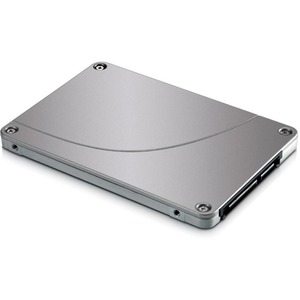
Fast storage for your desktop
Expand the storage capabilities of your desktop with the HP TLC 256 GB SATA SSD, which includes TLC flash and the same reliability you already get from current from SSD drives.
Smart design
Get enterprise-class read and write performance for sequential and random workloads in a small footprint with the triple layer architecture that stacks three cell layers on top of one another, with no moving parts.
Supported by HP
Protect your investment with a limited warranty.
Note:
- The full product specifications below are from the manufacturer and may contain information related to other package quantities that will not apply to the product that you are reviewing. Please confirm the actual content and/or package quantity from the main product specifications page.
- These specifications may represent the entire product series/model/line to which this product belongs with specific configuration differences between the individual products stated.
- These specifications may have been copied from the same product in other region/country in which case there might be minor differences in region-specific data such as Input Voltage, Terms of Warranty etc.
Model number P1N68AA
Unformatted Capacity 256 GB*
Architecture TLC NAND Flash
Interface SATA 3.2 (6.0 Gb/s)
Dimensions (W x H x D) 6.98 x 0.7 x 10.05 cm
Weight 36.5 g
Bandwidth
Performance
Sustained Sequential Read: Up to 498 MB/s
Sustained Sequential Write: Up to 455 MB/s
Random Read: Up to 84K IOPs
Random Write: Up to 49K IOPs
Power DC power requirement: 5 VDC 5%-100 mV ripple p-p
Total power consumption: 95mW (active); 70mW (idle)
Useful Drive Life 72TB written, up to 40GB/day
for 5 years
Environmental
(all conditions, noncondensing)
Operating Temperature: 32° to 158° F (0° to 70° C)
Relative Humidity: 5% to 95%
Shock: 1,500 G/0.5 ms
* For hard drives and solid state drives, GB = 1 billion bytes. TB = 1 trillion
bytes. Actual formatted capacity is less. Up to 16 GB (for Windows 7) and 36
GB (for Windows 8.1/10) of system disk is reserved for the system recovery
software.